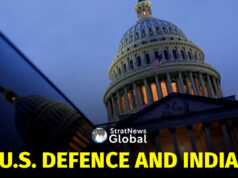Nepal has lifted the ban on the popular Chinese app TikTok, after it agreed to follow Nepal’s laws and rules regarding social media.
The ban was imposed in November last year by the then government of Prime Minister Pushpa Kamal Dahal (also known as Prachanda) citing concerns over social harmony and public decency.
Subsequently, the Nepal Telecommunications Authority, the regulator of telecom and internet services, instructed mobile and internet service operators to enforce the ban.
The ban is being lifted on the orders of the newly formed government of Prime Minister KP Sharma Oli.
“The cabinet today decided to lift the ban on TikTok under certain conditions,” said Prithvi Subba Gurung, government spokesman and Minister for Communication and IT.
“As TikTok agreed to abide by relevant laws and rules including the Directive on the Use of Social Network 2023 after being registered in Nepal, the decision to lift the ban was taken,” he told journalists on Thursday.
#Nepal lifts ban on #TikTok: The cabinet decides to end the ban imposed on 2023/11/13 & directs #ByteDance to complete legal requirements within three months. pic.twitter.com/8WCNHYhzHh
— Ujjwal Acharya (@UjjwalAcharya) August 22, 2024
The directive on social media includes a 19-point not-to-do list for users on platforms like Facebook, X, TikTok, YouTube, and Instagram.
It says nobody should create fake IDs on social media or share or make comments through such IDs. Likewise, people should not post any text, audio, video or picture that spreads hatred against any gender, community, caste, religion, profession, or people from any particular group.
Gurung said TikTok should work to control obscene videos and should designate a person to regulate the language used in TikTok content. Nepal has not banned any other social media platform including Facebook, Instagram, X or YouTube even though there are complaints against them of indecent and obscene content.
There’s speculation that Nepal’s decision to ban TikTok might have been influenced by neighbouring India, which banned TikTok in June 2020 along with 58 other Chinese apps. This followed the clash in Ladakh’s Galwan Valley between the Indian Army and China’s PLA resulting in the deaths of 20 Indian soldiers. Those bans remain in force.
Taranath Dahal, executive chief at Freedom Forum, a local NGO, welcomed the decision saying that a blanket ban on any social media platform would hit freedom of expression.
“The state can regulate harmful content on social media platforms,” he said. “But the blanket ban narrows down the space for freedom of expression.” The Prachanda government had failed to provide any proof of social disorder created by the TikTok when issuing the ban, he added.
The former prime minister’s office also weighed in, claiming to have put forward many conditions for the ban on TikTok to be lifted including controlling content relating to sexual violence, child labour, obscenity among others. It had also called for a system to address complaints about social media content.
“Whether TikTok has agreed to follow those conditions or there is motive for financial gains, will be clear in the days to come,” a press note issued by his office said.
The author is Executive Editor, Arthik Abhiyan Daily





